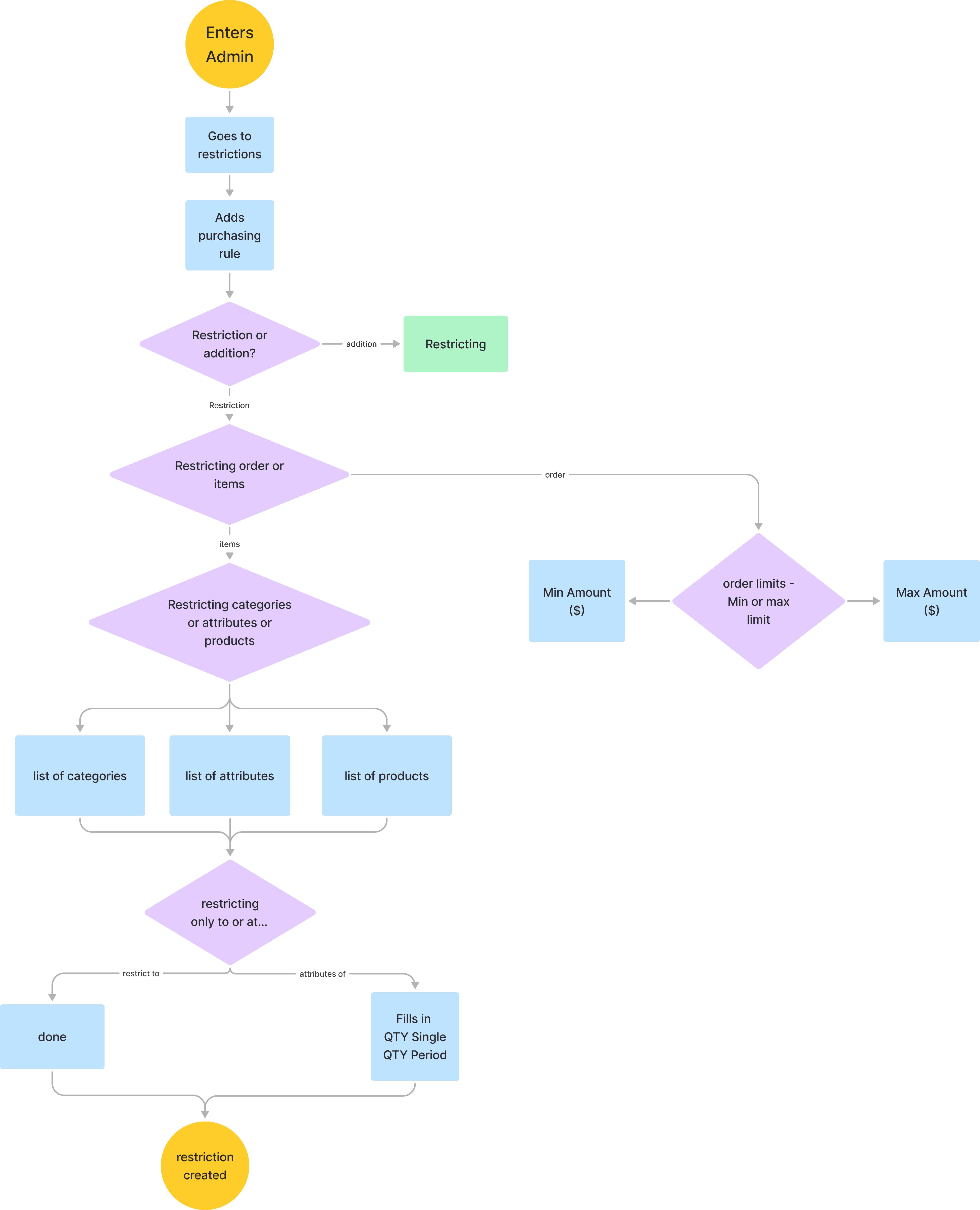Smart Restrictions
Design, Research
Introduction
Smart Restrictions is a key feature in a new product I designed for Prodigy Solutions. This is a mission critical feature thats is used to enforce rules in secure facilities, ensuring safety and compliance rules are met.
Goal: Create an intuitive restriction creation process that gives user clarity, while reducing creation and onboarding time for new and current users.
Role: Lead Design & Research
What are restrictions?
Restrictions are used to manage resident access to commissary items. They can be applied to the following:
Individuals
Attributes
Groups of
People
Location
Sex
Debt Level
Age
Permission
Level
Sales
Amount
Time
Research
How long does it typically take you to create a new restriction in your current system?
What do you like about your current system, and what would you change? Can you give an example?
Do you often reuse restrictions currently?
Briefly explain what purpose restrictions play in secure facilities?
Walk me through your process for creating restrictions using a recent example if you can.
Share your experience teaching a new team member to create restrictions. What challenges did you face?
Interview Insights
These highlights from user interviews helped give more context and verify the assumptions we had at the start of the process.
"A more streamlined system would save us a lot of time during busy shifts."
"Not being able to see what I was doing all at once made things more difficult for me."
"We need something that's easier to teach new users, especially since turnover is high"
User Roles
With this insight we defined user roles for the project.

Admin
Internal admins has full power over the restriction system and can assign who can create and edit them.

Staff
Has to know what restrictions are in place and way. May have permission to edit and create them.

Family & Friends
Are impacted by restrictions and given notifications if restrictions are impacting them in anyway.
User Flow
Armed with user context a general user flow was created next to ensure any subsequent designs hit functionality targets.

Creating a Restriction
Using a competitor product as a baseline we opted to use a checkbox toggle method to show restriction options. Users only see what they want to see, this was done to reduce cognitive load on users while also helping them maintain context.
Implementation
Per product requirements we created two modes for restriction creation. One for facilities and one for residents. By splitting them we give the user clear and intentional use cases.
Facility based restrictions apply to an entire facility or specific sections.
Resident based restrictions target individuals or groups of people.
Panel Examples
Giving users control over groups of items made creation time fast, this paired with smart rules allowed users to apply restrictions with more granular details with relative ease.
Outcomes
We saw a significant reduction in restriction creation time via user testing.
Avg time was ~1min down from 2:30 mins on competitor products.
Reusing and applying already created restrictions also increased user satisfaction.
We saw less errors from users while they were creating restrictions.





